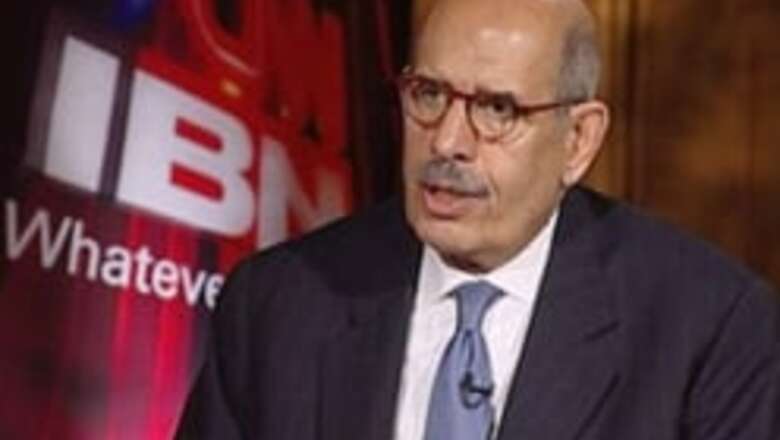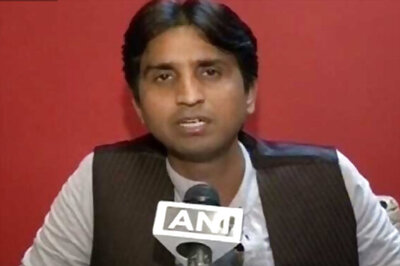
views
Vienna: The chief of the UN’s nuclear watchdog said on Friday said the India-specific safeguards agreement “satisfies India's needs while maintaining all of the agency's legal requirements.''
Mohamed ElBaradei spoke at the start of a meeting of the International Atomic Energy Agency's (IAEA) governing board expected to ratify the inspections plan on his recommendation, a precondition for the India-US deal to take force. The safeguards agreement would effectively allow UN monitors access to 14 of India's 22 existing or planned nuclear reactors by 2014.
The Indo-US accord would open up to India the world market in atomic materials and technology for civilian use but is controversial since New Delhi has conducted nuclear test explosions and never joined the global Non-Proliferation Treaty (NPT).
With a go-ahead from IAEA governors, India would then seek a waiver from 45 nuclear supplier nations allowing trade with a non-NPT country, then ratification from the US Congress, to finalise the deal.
ElBaradei sought to address doubts by some on the 35-nation board about possible ambiguities in the plan applied to India's declared 14 civilian nuclear reactors, phrasing they said might blur distinctions between its civil and military atomic sectors.
"These are not comprehensive or full-scope safeguards (unlike with NPT member states)...," he said. "(But) it satisfies India's needs while maintaining all the agency's legal requirements," he told the closed Vienna meeting.
"As with other safeguards agreements between the agency and member states, the agreement is of indefinite duration. There are no conditions for discontinuation ... other than those provided by the safeguards agreement itself," he said.
Some diplomats were concerned such language might allow India to halt inspections unilaterally if nuclear fuel imports were cut off, for example in response to another nuclear test, although India is observing a voluntary moratorium.
ElBaradei touched on another area of concern by announcing that talks with India on a system of short-notice, wider-ranging inspections, known as the IAEA's Additional Protocol, had begun.
Progress towards more intrusive inspections could help win over sceptical members of the NSG, which is expected to hold its first meeting on India on August 21-22.
Washington and New Delhi have lobbied other countries hard—26 of the 35 IAEA board members also are in the NSG—to advance the deal, with time fast running out before US politics pause for November elections.
Western powers tout the deal as nudging giant India towards the non-proliferation mainstream and fighting global warming by increasing use of low-polluting nuclear energy in burgeoning developing economies, reducing high oil and gas costs as well.
Some smaller Western and developing nations and disarmament groups are concerned the deal could undermine loyalty to a 40-year-old NPT already strained by a thrust for nuclear power, led by Iran, in the volatile Middle East. But diplomats said approval of the inspections scheme was not in doubt because, despite concern about ambiguous language, it would mark a net gain for non-proliferation.




















Comments
0 comment